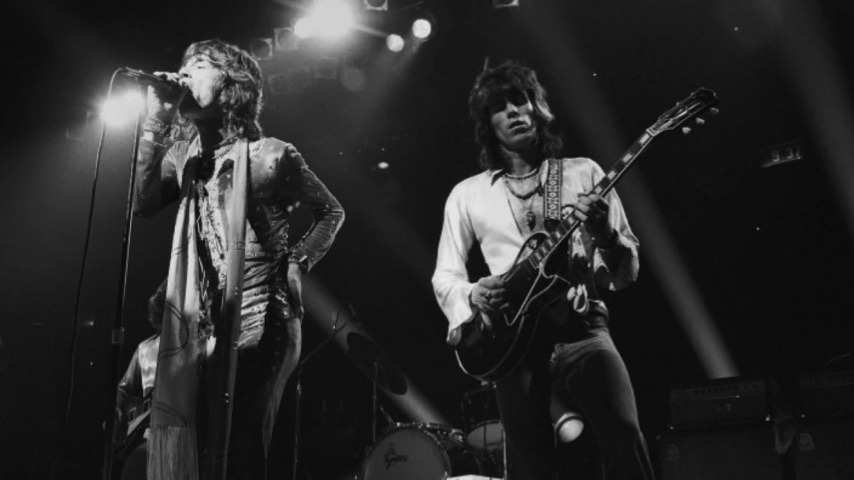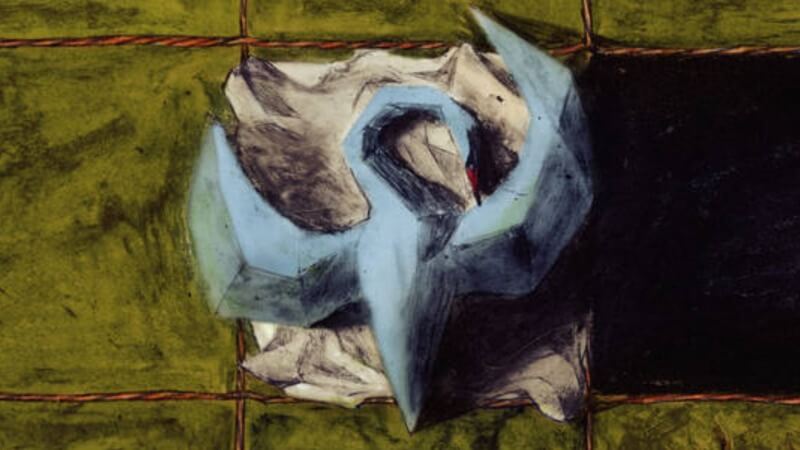June 9, 1978 was a big day. By about 5 p.m., Tony’s Stationary in Hawthorne, N.J., would have in stock the new Rolling Stones album, hot off the presses. I wouldn’t have to worry about it being sold out because who goes to the local stationary store for records? Only kids like me too young to drive.
I had already walked a mile home from school and now would have to walk all the way back into town to get the album. But that could not be helped as I had my afternoon newspaper route to attend to first, my main source of cash for my first three-in-one stereo system (radio, cassette deck and record player, bitches) and all the records that followed. Records were my new baseball cards. WNEW-FM had already played most of Some Girls and it was basically a rock record, which was a relief since the single that was being played everywhere, even when mom was driving and in charge of the radio, was uncomfortably disco-like. Hey, let’s just face the facts: It was disco.
And we were not supposed to like disco, us rock and rollers. In fact, we were programmed to violently hate it. In about a year, that would culminate with the famous “Disco Demolition; night at Comiskey Park in Chicago that got so out of hand the White Sox had to forfeit the game due to on-field rioting. I was in the midst that summer of arguing with female classmates that disco sucked and was a waste of time (brilliant strategy for repelling the opposite sex, in retrospect).
But here was the group synonymous with rock ’n’ roll danger crossing over to the strobe-lit polyester side. As I journeyed to the purchase, clutching my $10 bill, I thought about the bits of the album I heard and compared them with “Miss You,” which had been cutting through the din of AM radio already for a month. I had to say, “to, to myself,” that I liked it more than the rest. I was eager to get the album and hoping it would change my mind.
But it didn’t. I still believe “Miss You” is not only the best song on Some Girls but the best Rolling Stones song in their catalog. It stands out as the pinnacle of their genius, not merely co-opting a genre but branding it with their infamous logo and making it their own—like they were sticking their trademarked tongue out at disco, rock ’n’ roll and all of us for our preconceived notions.
“Miss You” being heralded as a career triumph should not be considered a controversial statement. Of course, a discography as deep as the Stones will have fans gravitate to various favorites, resulting in a number of songs vying for the putative top-spot. But “Miss You” is not remotely in the rotation. It wasn’t even included among the group’s top 40 songs by Uncut’s panel of all-star judges earlier this century. That’s despite three songs from “Some Girls” being ranked (and also “Memo From Turner,” which, um, isn’t even a Stones song).
Stones fans polled here did not list “Miss You” as “the best of their songs to dance to.” (It lost to “Brown Sugar.”) Are you fucking kidding me?
The last of their eight No. 1 singles, “Miss You,” you may be surprised to know, was universally praised by critics at the time, critics including famous Stones-basher John Lennon, who told Playboy just before his death that, “I think it’s a great Stones track and I really love it.”
The Baltimore Sun said, “‘Miss You’ is disco, but it retains an intensely erotic funk. [It’s] upbeat, infectious… but at the same time depressing and real.” The New York Times said it was “new and fresh” while surmising that Jagger wrote the song about the ending of his marriage to Bianca Jagger and wanted it to be played at the discos she frequented. (For the record, Jagger denies this, saying, “‘Miss You’ is an emotion, it’s not really about a girl. The feeling of longing is what the song is.”) The Montreal Gazette raved about the “cutting cynicism, anxiety and gritty emotion” of the “most dramatic disco performance of the year.” The Los Angeles Times called it “haunting.”
But rock critic John Laycock while describing “Miss You” as “distastefully alluring,” “seductive” and saying it “rocked hard” live, ominously noted in his 1978 concert review that the Detroit crowd “booed the Bee Gees’ disco tapes played before the show.”
The Stones reached their apex as a band with the great Mick Taylor on lead guitar, but on the studio version this is the best the post-Taylor the Stones ever sounded. They totally revamped their playbook for the song, using a conventional bass guitar/drum rhythm section rather than following Keith Richards’s rhythm guitar like on almost all their songs. This frees up Richards and Ron Wood to weave guitars and their interplay is one of the more thrilling examples of this technique ever recorded. For all of its pounding rhythm, “Miss You” is actually a great rock guitar record. That’s the transcendent quality that elevates it in their catalog. You can see that live here, from 1997. But you can hear it better here at the 19:37 mark from the 1978 tour, at The Capitol Theatre in Passaic, NJ. And here’s a version from the Paste Vault via a 1981 show in Hampton, Va.
I don’t know if it’s me following a narrative but the band in 1981 seems less certain of the song given the backlash it engendered from many Stones fans in light of the anti-disco craze.
“Miss You” just keeps getting stronger with each passing year. A song seemingly conceived to revive a band teetering on the brink of irrelevance and marginalized by the growing influence of disco on one side and punk rock on the other has easily outlived them both. It’s the rare song that would be just as massive a hit single if it were recorded today. Which of the other Stones seven No. 1 songs could you say this about? Possibly “Brown Sugar,” but that’s it. “Miss You” is not of a time. It’s beyond time.
And perhaps it’s finally getting its due. Earlier this year, it was included on the list of the 38 best songs by the group, with Living Colour’s Corey Glover saying, “It’s bluesy, but it has an urban thing about it. I don’t know how they managed to place blues and disco within the same sphere, but I like the idea. Lyrically there’s a pathos of one person sitting around and waiting for another to call them—and they don’t. They want somebody to fill that space, and the person they’ve chosen is not going to do it. It’s a clever song.”
The harmonica by Sugar Blue gives it that blues sound. And the Mel Collins saxophone urbanizes it even beyond the lyrics and disco beat.
And let’s not forget the lyrics. The Stones were always a funny band but this reaches a new level. Their humor here is not grounded in dominance or degradation, as was the case in songs like “Under My Thumb” and “Live With Me” (and numerous others). “Miss You” is a song about a guy who is refusing to drink and party with women due to missing a far-away lover (perhaps in time rather than in place). That this is Mick Freakin’ Jagger being forlorn in such an over-the-top way makes it hilarious. The only funnier song in their catalog is the disco-themed follow up, “Emotional Rescue,” which is clearly a total put on. “Miss You” works better because Jagger somehow sells it.
In the end, what is genius? Is it doing your own thing unforgettably? Or is it doing someone else’s thing in an unforgettable way? One can argue both ways. But what puts “Miss You” over the top is that such a daring step did not leave the public perplexed. It pulled them in and and rode them to the top of the charts.
Its influence was felt immediately. Within two years, rock icons Paul McCartney (“Goodnight Tonight”), Rod Stewart (“Do Ya Think I’m Sexy”), Queen (“Another One Bites The Dust”) and Pink Floyd (“Another Brick In The Wall Part 2”) all had smash hits with disco-themed singles. All followed on the Stones heels but none succeeded as completely as they did in finding more inspiration than mere imitation.




